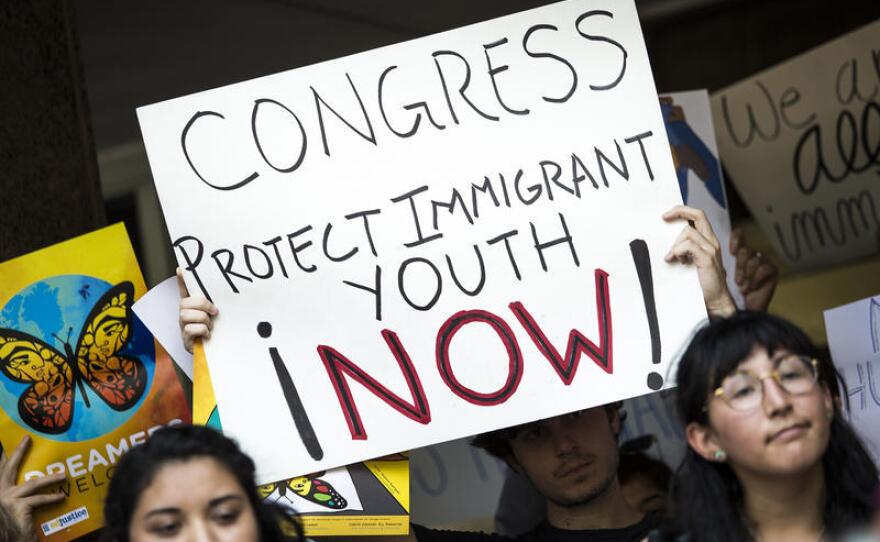Many recipients of the Deferred Action for Childhood Arrivals (DACA) program collectively took a sigh of relief when the U.S. Supreme Court upheld the program last week. But the state of uncertainty that “Dreamers” live in is far from over.
Democratic Congressman Joaquin Castro of San Antonio and Thomas A. Saenz, president and general counsel of the Mexican American Legal Defense and Educational Fund, dissect the high court’s decision and discuss what comes next.

On June 18, SCOTUS issued the 5-4 opinion in the case of Homeland Security v. Regents of the University of California, stating the Trump administration’s argument for rescinding DACA was “arbitrary and capricious.”
While the case name may sound unfamiliar, the ruling to uphold the Obama-era program protects around 700,000 young people living in the U.S. from deportation. Last week’s decision was celebrated as a win, but now DACA recipients and supporters are looking to the future.
DACA could still be challenged by this administration and the chances of dismantling the program would be even greater if President Trump is re-elected in November. A second term would give Trump officials a big enough window to present their arguments before the nation’s high court again.
“I have wanted to take care of DACA recipients better than the Do Nothing Democrats, but for two years they refused to negotiate,” President Trump tweeted the day after the ruling. “They have abandoned DACA.”
The Supreme Court asked us to resubmit on DACA, nothing was lost or won. They “punted”, much like in a football game (where hopefully they would stand for our great American Flag). We will be submitting enhanced papers shortly in order to properly fulfil the Supreme Court’s.....
— Donald J. Trump (@realDonaldTrump) June 19, 2020
The Democrats in fact, have not abandoned DACA. The House of Representatives passed H.R. 6, the American Dream & Promise Act, in 2019. It shields Dreamers and recipients of Temporary Protected Status from deportation and lays a path to citizenship.
H.R. 6 has stalled in the Republican-controlled Senate.
“We are always ready to engage the president and (Senate Majority Leader) Mitch McConnell in conversations about what's possible with respect to protecting our dreamers,” said Congressman Joaquin Castro. “And, you know, it makes it tough when the president uses immigrants as his number one political punching bag.”
Why is it so difficult to pass a DREAM Act?
Thomas A. Saenz, president and general counsel of MALDEF, said he believes there shouldn’t be any obstacles to passing legislation.
“The DREAM Act is something that is widely supported. I think the Trump administration certainly knows that,” said Saenz. “And really, the Supreme Court's decision is in line with a recognition that we need to do something to provide permanent relief and long term permanency of this group of immigrants in the country.”
Norma Martinez can be reached norma@tpr.org and on Twitter @NormDog1 and Lauren Terrazas can be reached at lauren@tpr.org and on Twitter @terrazas_lauren.





